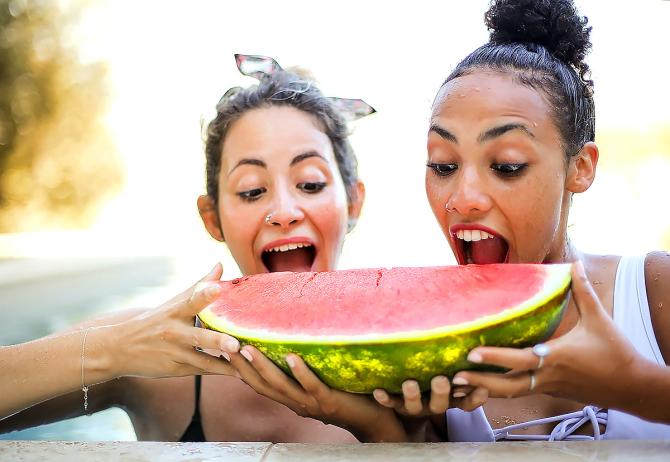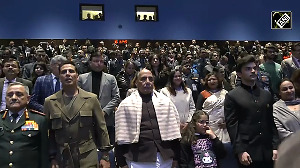Dietician Komal Jethmalani provides the right answer.

Dear readers, are you worried about your health as we battle COVID-19?
Concerned about what you and your family are eating as you cope with staying indoors?
Struggling with weight gain?
Or are you facing other heath issues like diabetes, blood pressure, joint pain or heart problems?
Please mail your questions to Nutritionist Komal Jethmalani (Subjectline: Ask Komal) for her advice.
Dear Komal,
I am a 40-year-old and I weigh 90 kg. I don't enjoy exercising and, with coronavirus, I am not confident to step out.
I would like to lose weight but I am tempted to have junk food.
I have decided to follow the Keto diet and will be cutting out carbs from my diet.
I plan to have fats and proteins only.
I would like to know if there are any side effects of such a diet. Is there a restriction on how long I can continue such a diet? Or would you recommend I go on a crash diet and lose weight and maintain that?
Do you have any tips to help me lose weight?
Suraj Chavan
Fad diets are not advisable.
They may help in certain conditions but may not be beneficial if continued for a long period.
Crash diets will lead to deficiency of nutrients and, thereby, weight loss mainly due to muscle loss. This leads to debility, low immunity and poor health.
It is better to follow a diet which has longevity in sustenance under expert guidance.
A healthy lifestyle with focus on nutrient balance and adaptation of a physical exercise regime will go a long way in helping you losing weight and maintain the right weight in the long term.
Focus on low fat and low carb foods. Steer clear of packaged foods, alcohol and juices and adopt cardio and strengthening exercises to build your immunity.
Hello Komal
I am 16. My height is 5 ft. My weight is 36 kg.
Kindly suggest a diet plan and some exercises to help me gain some weight.
Varsha Umberli
Weight gain depends on your body composition, activity and metabolic rates.
As you are underweight, eating high protein foods and controlled strengthening exercises will prove beneficial.
It is a gradual process that will require concentration on lowering cardio activities and increasing muscle build-up.
Avoid foods which have high fat and carbs, which may increase inflammatory reactions in the body.
Stress is a major factor that leads to weight loss.
Namaste Komalji
I'm a 50-year-old male.
My BP is normally between 120/60 to 135/70.
I have reduced my salt intake.
What other changes should I make in my diet to keep my BP in control?
Ramesh Kotian
Blood pressure can be controlled by a healthy diet that focuses on low salt foods.
Avoid packaged foods, canned foods, processed foods, lunch meats and fast foods.
Eat lots of fruits and vegetables.
A diet rich in fruits and vegetables can increase important cholesterol-lowering compounds in your diet.
Be aware of alcohol intake. Alcohol can increase your blood pressure as well.
Dear Komal
Can you explain what an intermittent diet is?
How does it help?
Is it safe?
How often should one do it?
Is there any age restriction?
Ganesh Patwardhan
Intermittent fasting is used for various meal timing schedules that cycle between voluntary fasting and non-fasting over a given period.
Although the fasting hours can be different each day, listening to your body is important. Fasting as per the circadian rhythm is ideal.
Intermittent fasting can aid weight loss and has several other benefits. It decreases insulin resistance, has a positive effect on gut microbiota and increases energy levels.
Different diets give different beneficial results to some but may prove harmful to others.
Consider your blood parameters and overall health conditions and take advice from a professional prior to following any diet.
Dear Komal
Nowadays, they say it is better no to have rice or wheat, to go for grains like jowar, bajra, ragi. I’ve even heard about cauliflower rice.
This is something our palate is not used to.
Is it really necessary to drop rice and wheat and go for all of this?
How much does it really benefit?
Kapilakshri S
Along with protein and vitamins, jowar, bajra, ragi and cauliflower rice also have a main component -- essential fibre which has a great impact on our health.
Their numerous benefits include lowering the glycaemic index, blood pressure, cholesterol, flushing out toxins and improving gut health.
Refined rice is devoid of this component so it comes under the ‘not so advisable’ list. But, if consumed in combination with fibre-rich vegetables and salads, it will be acceptable.
In general, all cereals and millets have similar protein, carbs, essential B complex and other vitamins which are good for health. Millets, in addition, are high in fibre.
Cauliflower rice is low in calories and high in fibre, so you can eat it if you are following a calorie restricted diet.
Komal Jethmalani is a dietician with over 25 years of experience in food, nutrition and dietetics, with an MSc in food science and nutrition.
A certified diabetes educator and lifestyle coach, specialising in diabetic, cardiovascular, weight loss and various therapeutic diets, she consults under the brand, The Diet Mantra.
And she will try and help you achieve your dietary and fitness goals through healthy lifestyle changes.
Do share your complete health details including age, weight, height and health issues if any.
Write to getahead@rediff.co.in (Subject: Ask Komal), along with your name. You are most welcome to share your photograph as well.
This column is an advisory. Please do consult your doctor as well.
Disclaimer: All content and media herein is written and published online for informational purposes only. It is not a substitute for professional medical advice. It should not be relied on as your only source for advice.
Please always seek the guidance of your doctor or a qualified health professional with any questions you may have regarding your health or a medical condition. Do not ever disregard the advice of a medical professional, or delay in seeking it because of something you have read herein.
If you believe you may have a medical or mental health emergency, please call your doctor, go to the nearest hospital, or call emergency services or emergency helplines immediately. If you choose to rely on any information provided herein, you do so solely at your own risk.
Opinions expressed herein cannot necessarily provide advice to fit the exact specifics of the issues of the person requesting advice.










 © 2025
© 2025